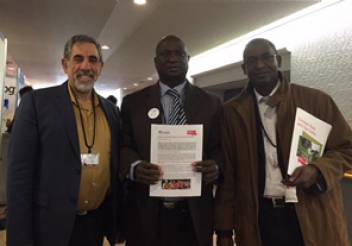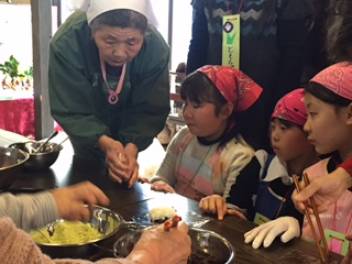 As a leader in the NGO Committee on Ageing at the United Nations in New York, I am honoured to have received a scholarship from the United Nations to assure older people’s concerns were heard at the Third World Conference on Disaster Risk Reduction.
As a leader in the NGO Committee on Ageing at the United Nations in New York, I am honoured to have received a scholarship from the United Nations to assure older people’s concerns were heard at the Third World Conference on Disaster Risk Reduction.
The conference was held in Sendai, Japan, 14-18 March and the NGO Committee on Ageing strongly supports this critical work.
Attended by delegations from 180 nations and innumerable NGOs, academic institutions, businesses, advocates and others, this Conference on Disaster Risk Reduction has now come to a close.
After many hours of negotiations, the world’s nations finalised an important global framework for the next 15 years. Its aim is to reduce damage to the world’s peoples, societies, animals and planet through effective planning and response for resiliency in natural disasters. The concerns of older people are prominently included in this global plan. Yet, this is just the beginning.
Significant progress made
Working closely with the HelpAge team, we found many at Sendai appreciative of HelpAge’s work. They understand the need to make disaster risk reduction policies and implementation more inclusive of older people.
Surprisingly, we found our small delegation was the only group primarily concerned about older people in emergency planning and response. And we made significant progress.
Listening carefully to the opening statements of many Ministers and top officials, I reached out to many official delegations to express our concerns, to seek support and time to jointly develop new strategies with them.
For many nations, this was the first time that anyone has ever reached out to them regarding older people in emergency situations. That, by itself, represents a significant step forward.
Supporting governments
Consequently, we had great meetings with the delegations of Myanmar and the United States. A Minister from the Burmese delegation expressed her appreciation for HelpAge’s work and offered specific suggestions to expand its reach.
With the United States, we found an openness to suggestions that we educate relevant staffers at the Federal level on the unique concerns of older people in disasters. We brainstormed on the possibility of creating new linkages to bring this important global concern to a wider audience.
Meeting members of the disability and gender communities yielded enthusiasm for jointly advocating for more inclusive emergency planning and response initiatives.
Launch of Disaster Risk and Age Index
 Yes, we made many new friends, and renewed connections with existing partners around the globe. We spoke with attendees from at least 60 nations. Launching the HelpAge Disaster Risk and Age Index drew numerous delegates to learn more about how their country could improve.
Yes, we made many new friends, and renewed connections with existing partners around the globe. We spoke with attendees from at least 60 nations. Launching the HelpAge Disaster Risk and Age Index drew numerous delegates to learn more about how their country could improve.
One of the things we learned at Sendai is that we can’t do this alone. It’s heartening to know that even without our direct intervention, the community of nations understands the centrality of inclusion of older people in disaster risk reduction efforts. Yet, older people must be more vocal on this issue that affects them disproportionately.
Ibasho café
In Japan, we have a prime example of the resilience of older people following disasters. The Ibasho Café, which began as a community initiative of older people responding to the 2011 Japan Tsumani, has become a community model of social interaction and pride.
We ask that you join with us, particularly back in your home country. It’s important to advise myself and HelpAge of your progress and the challenges you face. That way, we can better plan for making the best use of the new Sendai Framework.
More on older people and disaster risk reduction
>> Use our interactive Disaster Risk and Age Index map and download the infographic.
>> Download the Disaster Risk and Age Index (and methodology) report (1.9mb).
>> Read our Disaster Risk and Age Index Storify.
>> Read more about our work on disaster risk reduction and climate change.
>> Find out about Charter 14 for older people in disaster risk reduction.
